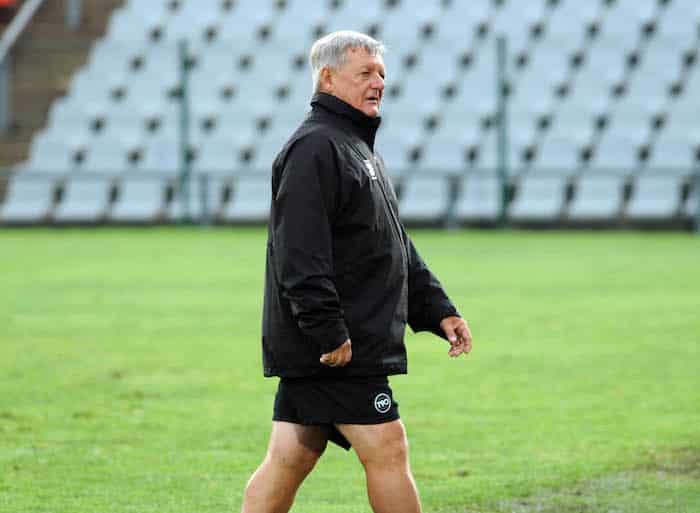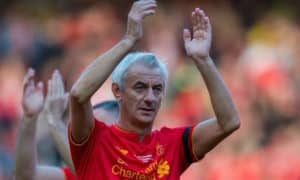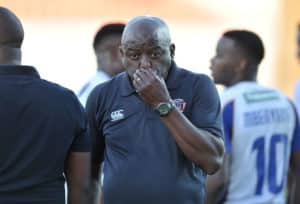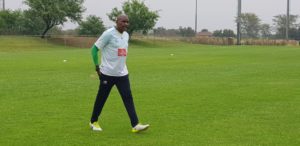The late Clive Barker’s time with Bafana Bafana is a story often told, but there was much more to him as a coach than just his national team exploits, writes Mark Gleeson.
The outpouring of emotion when Clive Barker passed away in June this year was a testament to him not only as a football coach, but also as a person. He passed away at the age of 78 after fighting a brave battle with Lewy body dementia, leaving behind an incredible legacy as the only man to take Bafana Bafana to Africa Cup of Nations glory, in 1996, and having qualified the side for their first World Cup in 1998.
He was replaced before he could lead them in France, but left his role as the most successful coach in South Africa’s international history.
But there was much more to his achievements than that, including his role in defying the Apartheid government in the 1970s. Here is a time line of important moments.
1974: Still relatively new to the coaching ranks, Barker takes charge of AmaZulu for the first time and almost straight away helps them to a 2–1 win over Kaizer Chiefs at KwaMashu on 2 June. He is lifted on the shoulders of the supporters as they celebrate victory.
1975: The Embassy tournament is the multi-racial games, first started in 1974. Barker recalled: “Dudley Zagnoev was the guy who controlled it (he was the secretary of the white Football Association of South Africa) and asked me to be the coach of the Indian XI.
The Federation League would not release their players, so it was a bit of a watered-down Indian side. I thought to myself the only way to make them competitive was to get them 500 % fit.
I was like a sergeant major. I tell you, this team was so fit, and we started the tournament with a game against the Black XI. They had Jomo (Sono), Shakes (Mashaba) and Ace (Ntsoelengoe) – everyone who was anyone in football. They had the press swarming all around them.
Everyone thought we’d get thumped, but we only lost 4–2.”
1982: Barker’s Durban City beat Highlands Park 1–0 at Kings Park with two matches to go and effectively secure their first ever NPSL title. They win the championship from Wits University by one point.
1983: Durban City’s biggest win sees them within sight of a second title in a row after thrashing Mamelodi United 9–0 in Durban, thanks to two each for Steve van Eck and Neil Tovey and a Kevin Mudie hat-trick. Barker’s side ends three points clear of second-placed Chiefs.
1984: After shocking the Durban soccer scene by moving to Bush Bucks, Barker has a successful debut – a 3–2 win away at Pirates.
1985: Bush Bucks beat Rangers 4–1 in Umlazi to clinch the league title in a tense match. Rangers defender Mike Lambert punches and kicks Bucks striker Calvin Petersen and is then punched by irate supporters, who rush the field, before being red carded. David Magwaza scores first for Bucks but Shane MacGregor equalises. Then there are goals for Mlungisi Ngubane, Calvin Petersen and Mike Mangena.
1992: Barker’s AmaZulu beat Kaizer Chiefs 3–1 after extra time, with goals from Simon Magagula, Ephraim Mwale and George Dearnaley, to win the Coca Cola Cup at Soccer City, stunning their more fancied opponents.
1996: Mark Williams comes on as a sub to ensure South Africa’s success at the Africa Cup of Nations final at Soccer City with a 2–0 win over Tunisia. It is still the only major title for Bafana Bafana, who have not hit such heights since.
1997: Phil Masinga’s Exocet-missile goal hands Bafana Bafana a nervy 1–0 victory and a place at the World Cup finals in France with Barker doing his now famous airplane celebration as the crowd chants ‘Siyaya iFrance’.
2001: Barker’s Santos upset Mamelodi Sundowns and win their first major trophy as they take the BoB Save Super Bowl with a 1–0 win at Soccer City on June 9, with Tyren Arendse’s 13th-minute winner.
2015: His last job at Maritzburg United in the 2015–16 season ensured he was the oldest man to coach in the Premier Soccer League. Barker started in 1973 and by the end would coach at six clubs, including AmaZulu, with whom he had six different spells in charge.
Photo by Samuel Shivambu/BackpagePix





